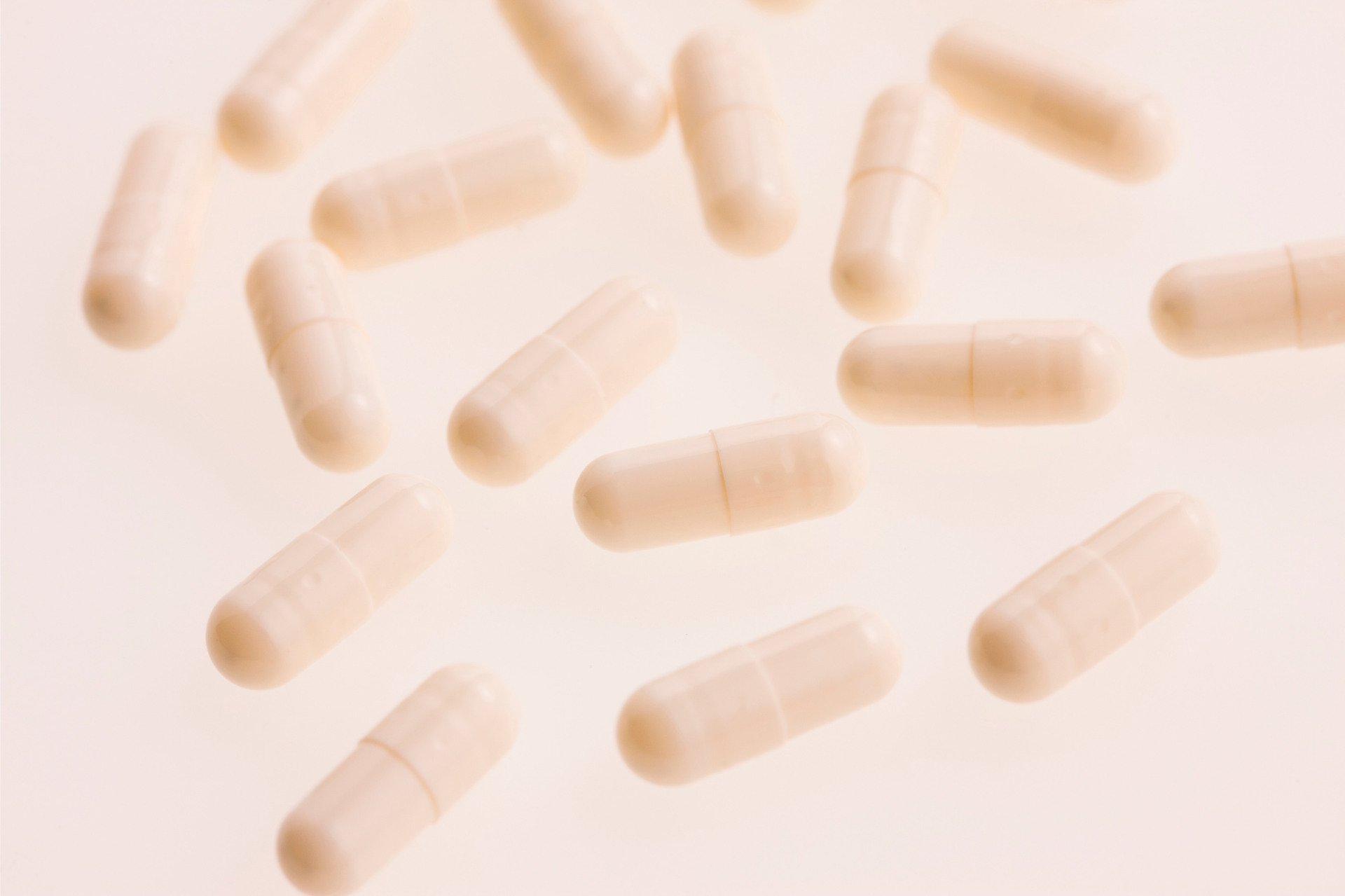Our Multi, Deconstructed… Let’s talk minerals
10th October 2019 / Ingredients
Our Multi, Deconstructed… Let’s talk minerals
Emily Shannon

The last instalment in our Multi Plus deconstruction delved into the growing popularity of multivitamins and gave you some important info about the vitamins that we use in our Multi Plus. We gave a comparison to our very own Multi Plus against daily NRVs. But, it doesn’t stop there, oh no, we’ve got more! This week, we’re going to take it one step further and talk about the minerals, by the end you’ll be totally clued up.
Just before we do that, we wanted to give you a little more info about how we use the vitamins and minerals in our Multi Plus in there food based form. To give a little context…
THE MISSING LINK
We like to think of ourselves as ‘the missing link’… but what does this really mean? Well, to put it simply our the vitamins and minerals in our supplements give you the nutrients as you would find them in real food, just as nature intended. They are delivered alongside all of their necessary cofactors, or what we know as proteins, lipids and carbohydrates.
Wondering why do we do this? Well, we do this for a few reasons. The cofactors mentioned earlier all play an important role in how the body handles nutrients from food. This includes how the body extracts, absorbs, delivers and uptakes nutrients into cells. Supplements in a food based form basically make things a little easier for the body, so that it doesn’t have to work as hard to use the nutrients at a cellular level. Plus, it means there is absolutely no need for mega dosing… Sound good? We certainly think so!
So let’s get back to basics, and talk about our marvellous minerals.
WHAT ARE MINERALS?
Minerals are inorganic substances that our body requires to carry out specific functions at a cellular level… but what does that really mean? Well, minerals are involved in some pretty essential processes and formations within our body. They form the basis of the formation of our bones and teeth, essential constituents within our fluids and tissues, integral within our enzymatic systems and ensure the healthy functioning of our nervous system… the list really could go on!
CALCIUM
Calcium is the most abundant mineral in our body, and plays a role in many essential processes. Not only is it important for the development and maintenance of our bones and teeth (alongside vitamin D), it also plays an important role in a number of signalling and metabolic processes. It helps with the control of muscle contraction and is also required for healthy blood clotting.
Magnesium is also essential for a number of physiological processes within our body. It’s required for the activation of a number of specific enzymes that allow our body to function correctly. Magnesium also plays a significant role in muscle and nerve function. It allows our muscles to relax and contract and is important for the recovery of our muscles after exercise.
IRON
Essential for the formation of haemoglobin within our red blood cells, its haemoglobin that our cells need to transport oxygen around the body. Iron deficiency anaemia is considered to be the most common nutritional deficiency within the UK, similar to magnesium it plays a key role in a number of enzymatic reactions within the body. Not only that but iron is important for a healthy, functioning immune system. Dietary sources of iron include lean red meat (known as haem iron), cereals, vegetables, pulses and nuts (which are known as non-haem sources).
COPPER
Copper is a component of many enzymes within our body and is required for the production of both red and white blood cells. We also require copper to utilize iron efficiently. Rich sources of copper include shellfish, nuts and wholegrains.
Manganese is essential for the formation of healthy bones as well as for our energy metabolism. It’s also essential for the prevention of free radical-mediated damage to or cells. Manganese levels are carefully controlled within our blood; the richest sources are vegetables, wholegrain cereals and nuts.
CHROMIUM
The primary function of chromium is thought to be the role it plays within our carbohydrate and lipid metabolism. It is also thought to play a role in the activation of insulin, which helps to control our blood glucose levels.
ZINC
Zinc is integral for a functioning immune system and also helps to ensure would healing. It also plays a role within our metabolism and acts as a cofactor for a number of enzymes within our body. Zinc is rich in a number of foods, which include milk, cheese, meat, wholegrains and nuts.
SELENIUM
Selenium helps to protect the body from oxidative damage as well as being necessary for the use of iodine within our thyroid hormone production. Selenium is also essential for the healthy functioning of our immune system.
IODINE
Iodine plays an essential role in the regulation of metabolic rate, as it’s an essential component of our thyroid hormones. The amount of iodine in plant based foods, including vegetables and wholegrains is determined by the amount of iodine that is growing in the plant’s environment. Shellfish and seaweed are also rich sources of iodine.
In case you’re wondering about the NRV’s* for all the vitamins that we include in our Multi we’ve popped it in a table so you can see at a glance!
|
Vitamin |
Daily NRV |
Quantity in Multi |
% NRV in Multi Plus |
|
Calcium (mg) |
800 |
18 |
2 |
|
Magnesium (mg) |
375 |
25 |
7 |
|
Iron (mg) |
14 |
5 |
36 |
|
Zinc (mg) |
10 |
6 |
60 |
|
Copper (mg) |
1 |
0.5 |
50 |
|
Manganese (mg) |
2 |
1 |
50 |
|
Selenium (μg) |
55 |
55 |
100 |
|
Chromium (μg) |
40 |
60 |
150 |
|
Molybdenum (μg) |
50 |
10 |
20 |
|
Iodine (μg) |
150 |
150 |
100 |
* You can find out more about NRV's here.
Want to get your hands on our Multi Plus...we don't blame you! Head here to purchase your bottle of sunshine today!
From The Blog
-

1st March 2022 / Health / Ingredients
Benefits of Boswellia for joint health
Boswellia might just be the best kept secret for supporting long term joint health, want to find out some of the key benefits of Boswellia? Look no further, let's delve right in! Boswellia is a sp...
Read article -

1st March 2022 / Health / Ingredients
Why magnesium is the wonder mineral for performance
Magnesium is probably one of the most important nutrients for feeling your best every day, yet it’s not talked about often enough. It’s commonly deficient in our diets, with a 2018 study finding th...
Read article -

19th March 2021 / Health / Ingredients
What is hyaluronic acid?
Hyaluronic acid is something of a buzz word when it comes to skin. You’ll find it in skin creams, serums and masks but what actually is it, and how is it good for your skin? We’ve included this mir...
Read article



